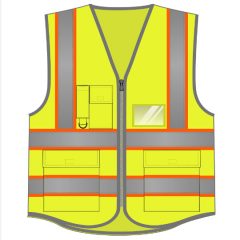Required bicycle bikes – mainly lights and reflective vests, or reflective pedestrian elements. Police officers who worked on the roads in cooperation with Besip monitored all this. The reason is still high numbers of pedestrians or cyclists who are dying on Czech roads.
“With the dwindling daylight, such preventive actions will be more frequent,” said Czech TV editor Martin. The police officers set off on their journeys in the early hours of the morning, when they did not yet. On the outskirts of Lionel, they were interested in how pedestrians or cyclists are seeing along the busy road to work.
“We stopped and checked two dozen cyclists and we had all the equipment in addition to one. They had front and rear lights as well as reflectors in spikes, “police spokesman Pavli said. They are also interested in pedestrians who have to wear a reflective tape for better visibility. Contribute to greater recognition of pedestrians and cyclists by BESIP. “We give reflection accessories for pedestrians and cyclists,” Olomouc coordinator told BESIP.
Police officers plan similar checks for other days in other locations in the Olomouc Region. According to experts, it makes sense – most of the fatal accidents to cyclists or pedestrians will happen early in the morning or in the evening. Last year 4226 traffic accidents were reported in the Czech Republic where 68 cyclists were killed, 394 were seriously injured, and 3138 were slightly injured. Cyclists have caused 783 accidents and almost a third of them were under the influence of alcohol, according to the Interior Ministry.
This is why the ministry, in co-operation with BESIP, rejects a senate proposal that required cyclists in reflective clothing on local roads not to be fined for driving under the mild influence of alcohol. The government will not support such a proposal as expected in Parliament. The Ministry of Transport refused the abolition of zero tolerance for alcohol under wheelchairs because “an alcohol-based cyclist is not only dangerous to himself but also a major danger to other road users.” The Interior Ministry also rejected the proposed reduction in the fine for cycling under the influence of alcohol from the current 2500 to 20,000 crowns to a maximum of 500 crowns.
